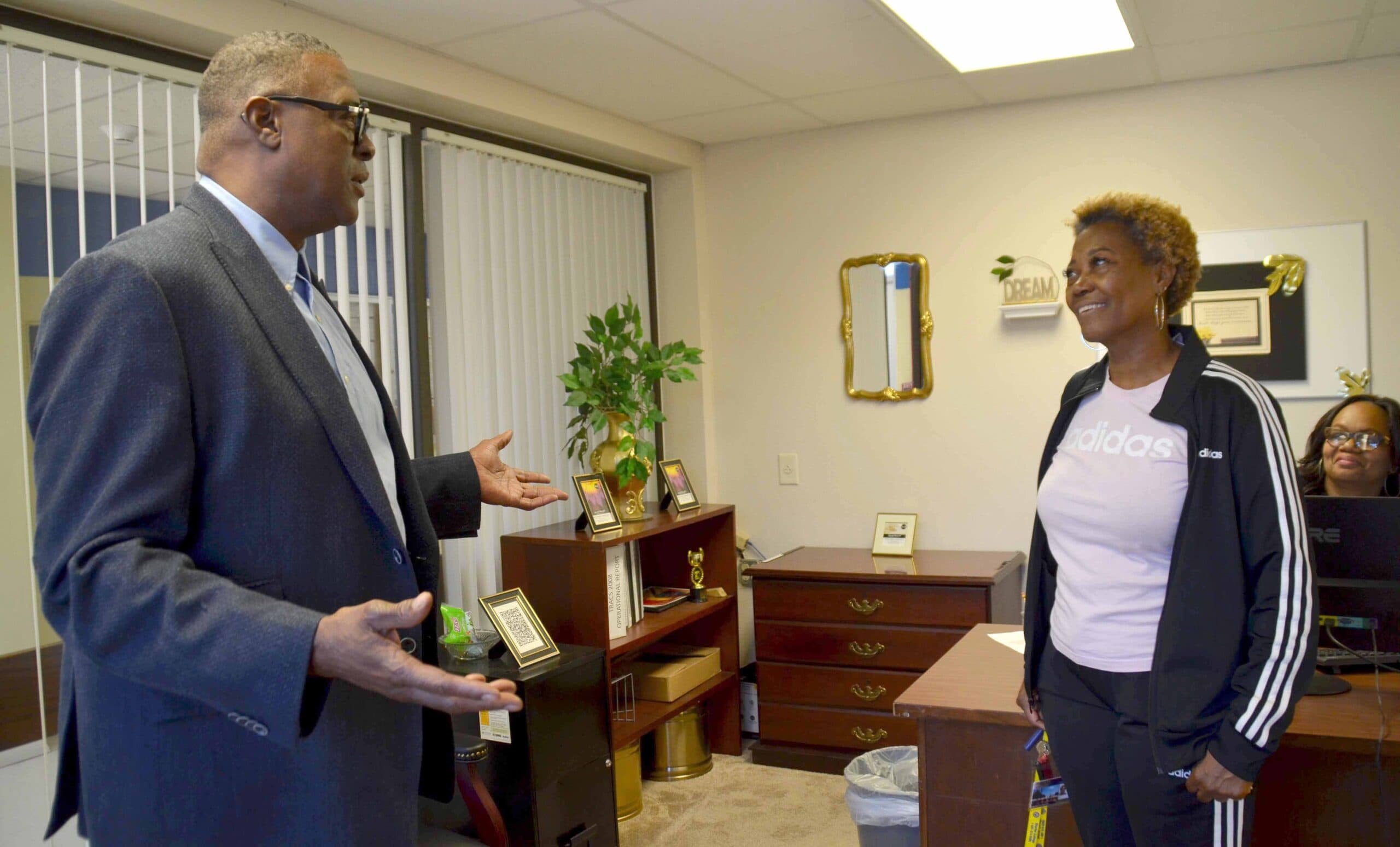Odell Johnson, Ph.D., Partners with Pulaski County HBCUs and Second Chance Pell Students for Pilot Study
| Odell Johnson, Ph.D., of the University of Arkansas for Medical Sciences (UAMS) Fay W. Boozman College of Public Health, is leading a Universal Basic Income (UBI) pilot study linked to the Second Chance Pell Experiment, which is a federal initiative that gives justice-impacted individuals access to a postsecondary education.
“The goal of the Second Chance study is to build a community of justice-impacted scholars in the field of Science, Technology, Engineering and Math (STEM) on historically Black colleges and universities (HBCUs) in Arkansas,” Johnson said. “We want to increase the number of students, peers, mentors, educators and community leaders in STEM who have been justice impacted and disenfranchised by the mistakes they have made.”
Justice-impacted individuals are people who have experienced the criminal justice system through either law enforcement engagement that led to arrest and conviction, or incarceration.
Johnson — a research fellow in the Southern Public Health and Criminal Justice Research Center (S-PAC) — is conducting the study through a partnership with Shorter College and Philander Smith University in which he’ll work with Black males, 18-45 years old, who are in the Second Chance program. Johnson will conduct one-on-one interviews and focus groups with the participants and school administrators to determine whether a stipend will make a difference in the lives of the targeted population and improve their overall health and well-being.
“This project seeks to obtain the perceptions of community stakeholders and Second Chance Pell students about the efficacy of providing a supplemental UBI income of $500 per month for six months,” Johnson said. “We want to reduce the financial burden associated with reentry and to improve health and health seeking attitudes. We also want to strengthen employability and housing access, to increase community sustainability and safety, as well as reduce recidivism.”
Funded by the National Institute of Health Diversity Supplement for $248,000 over two years, the study began in September.
“The barriers to wealth for younger Black men have ensured that they often have inadequate incomes to meet their social, material and health needs,” Johnson said. “Incarceration rates for young Black men are disproportionately higher than any other ethnic male group, primarily due to structural racism that exacerbates oppression through excessive punitive sentencing — thus leading to poverty.
“There’s a critical need for interventions that facilitate access to appropriate community-based health services, particularly for those who have a history of incarceration,” Johnson stated. “This pilot study aims to address that need and inform health policy by testing a novel intervention that directly reduces the racial income gap by providing a basic income.”
Shorter and Philander Smith, in late 2023, concluded their allotted tenures with the Second Chance Pell Experiment. Both schools, which are HBCUs located in central Arkansas, are ideal sites to conduct the study, Johnson added.
“HBCUs provide quality supportive services for the participants while they’re incarcerated and also upon their release from carceral settings, as it relates to their education,” he said. “HBCUs offer the unique value of a close-knit, community culture.”
Previous research suggests that justice-impacted individuals receiving an education benefit not only the participant but their surrounding community as well. In fact, because of the benefits, there’s a surge in the number of justice-impact individuals requesting to enroll in degree programs in carceral settings and after reentry.
“A quality education improves public safety, reduces recidivism rates and allows justice-impacted individuals to come home and become productive members of society,” Johnson said.
Several decades ago, Johnson was justice-involved, and afterwards entered a degree program, which contributed greatly to getting his life back on track. He is aware of what justice-impacted individuals need to excel in academia, and life beyond. This pilot study provides an additional means for him to make an impact in central Arkansas.
“I myself, am a person who have had experiences with the criminal justice system,” Johnson said. “I have a personal stake in the success of Arkansans who have been impacted. Education was my path to personal redemption and professional development, which has allowed me to become a principal lead research investigator to spearhead this study.
“The program increases educational opportunities that will empower justice-impacted individuals to become productive citizens in society.”
